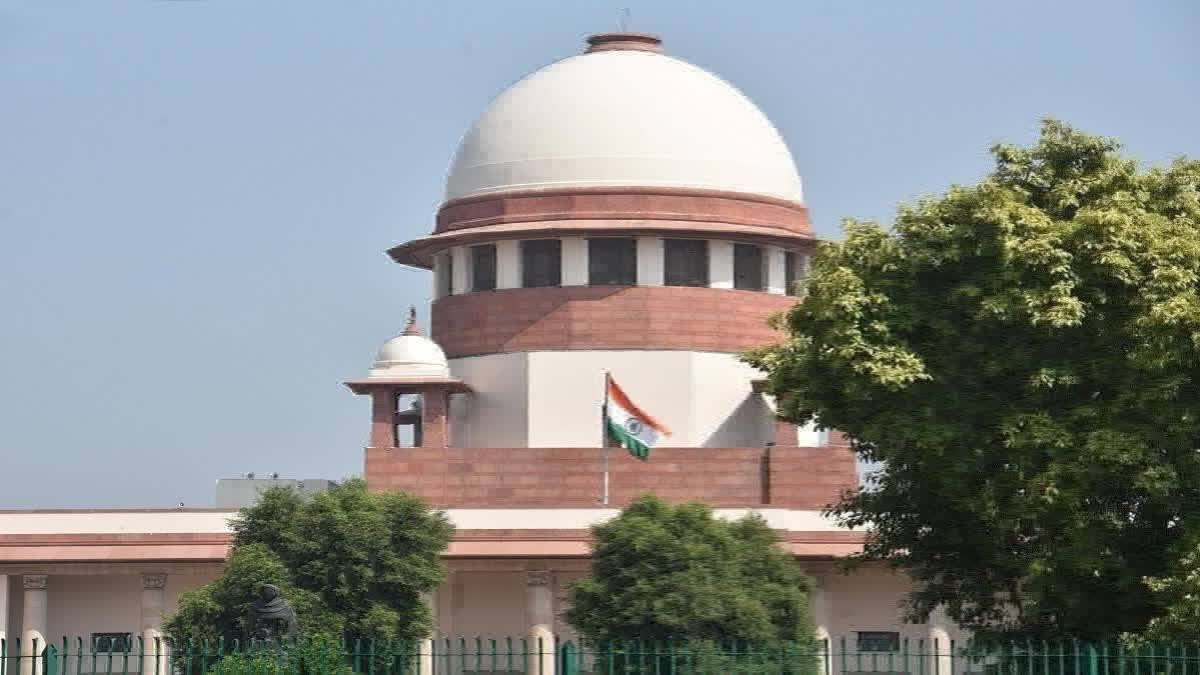New Delhi: The Supreme Court on Thursday said it will appoint a special prosecutor to conduct the trial in the 2015 cash-for-vote scam case in which Telangana Chief Minister A Revanth Reddy is an accused.
Senior advocate C Aryama Sundaram, appearing for Bharat Rashtra Samithi (BRS) MLA Guntakandla Jagadish Reddy and three others, requested a three-judge bench led by Justice B R Gavai to transfer the trial in the case. He argued that the Telangana CM has been publicly making statements on the case. The bench, also comprising Justices P K Mishra and K V Viswanathan, was hearing a petition seeking transfer of the trial in the case from the state to Bhopal.
Justice Gavai said the court will appoint a special prosecutor to conduct the trial and the bench will consult colleagues from Telangana and pass an order at 2 pm. Sundaram submitted that Telangana CM is himself the Home Minister. "Only on apprehension, how can we entertain...If we entertain such petitions, we will be disbelieving our judicial officers," said the bench.
Sundaram contended that there is a rule of natural justice that no person should be a judge in his own cause. However, the bench said it will appoint an independent public prosecutor to inspire confidence.
The state government counsel contended before the bench that wherever there has been a quashing, the ACB has challenged the quashing including one which is before the apex court and it was on jurisdiction. “We will direct the appointment of a special prosecutor. We will consult our colleagues from Telangana and Andhra Pradesh. We will pass an order at 2 PM”, said Justice Gavai.
The bench observed that from 2021, the matter is pending and the stay is operating and only after 2024, when the election results are declared a petition is filed for transfer.
The plea, seeking transfer of the trial to Bhopal, has raised the issue of a free and fair trial saying that Revanth Reddy has now become the chief minister as well as home minister of Telangana. “We will only say, in order to have complete faith in our judiciary. In order to have some impartiality, the sense of confidence in the minds of everyone. We will appoint….”, said Justice Gavai. Sundaram insisted that the ACB is directly under the chief minister and he holds the ministry.
In May 2015, Revanth Reddy, then with the Telugu Desam Party, was apprehended by the anti-corruption bureau (ACB) while allegedly paying Rs 50 lakh bribe to Elvis Stephenson, a nominated MLA, for supporting TDP nominee Vem Narendar Reddy in the legislative council elections. Apart from Revanth Reddy, the ACB had arrested some others. All of them were later granted bail.
The plea filed by GuntaKandla Jagadish Reddy and three others through advocate P. Mohith Rao stressed on the need for a free and fair trial, and urged the apex court to transfer the case to Bhopal, Madhya Pradesh. The petitioners include a former deputy chief minister and former ministers of Telangana.
The plea said, “the accused no.1 who is prime accused in CR. No.11/ACB-CR1-HYD/2015 has become the Chief and Home Minister for the State of Telangana having 88 criminal cases pending against him and under these circumstances as the Accused No.1 has the direct control over the prosecution it is understood that there cannot be any possibility for free and fair trial which is sine qua non of Article 21 of the Constitution”.
The plea said if the trial is continued by the principal judge for trial of cases at Hyderabad, Telangana then the rule of law will be vitiated and the judicial fairness, criminal justice system would be at stake shaking the confidence of the public at large.
The two cases against which the transfer was sought are Telangana through Addl. Superintendent of Police Vs. A. Revanth Reddy & Ors, and Telangana through Addl. Superintendent of Police Vs. Sandra Venkata Veeraiah. The cases are pending for trial before a special judge in Telangana.
Revanth Reddy has challenged the June 1, 2021 order of the high court by which his plea questioning the jurisdiction of the special ACB court to conduct the trial in the case was dismissed.
Conclusion:



